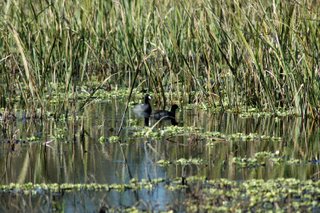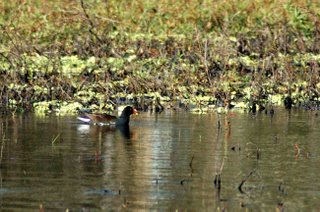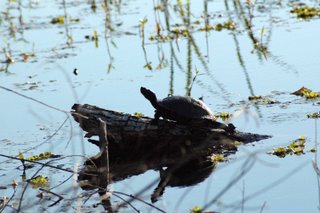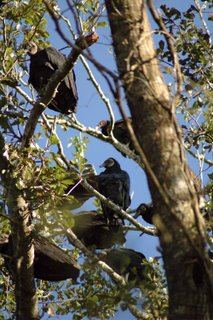This park is home to a population of American Alligators, and we were hoping to see some, but considering the physical limitations of two of us, we were only able to enjoy a nature walk that looped around Creekfield Lake. There was plenty to see and enjoy, and also to listen to. There were Great Blue Herons, Snowy Egrets, American Coots, Common Gallinules, Common Crows, various sparrows, and I heard what sure sounded like a Pileated Woodpecker.

American Coots were pretty common in Creekfield Lake.

This striking bird is a Common Gallinule, a member of the coot, gallinule and rail family. Note the red beak with its yellow tip. (You'll need to click the image to open it in its normal size.) This is a new addition to my life list.

This little caterpillar was fairly common on the emergent vegetation of Creekfield Lake.

This was the only aquatic reptile we saw, but then we were not able to get to the prime alligator viewing areas.

If there was anything that characterized this visit to Brazos Bend, it would be the vultures. I estimate about there were about 50 Black and Turkey Vultures. They tended to roost in separate trees, but if you look carefully, the uppermost bird on the right in this group of Black Vulture is actually a Turkey Vulture.

Every so often a group of vultures would take flight and circle around. The Black Vultures have the light parts of their wings at the tip, while the Turkey Vultures have the light area extending from the tip along the trailing edge of the wing.
Brazos Bend State Park offers camping, hiking, cycling, birdwatching, fishing, and camping. (Important point of alligator etiquette: If you catch a fish and an alligator wants it, let it have it.)
No comments:
Post a Comment